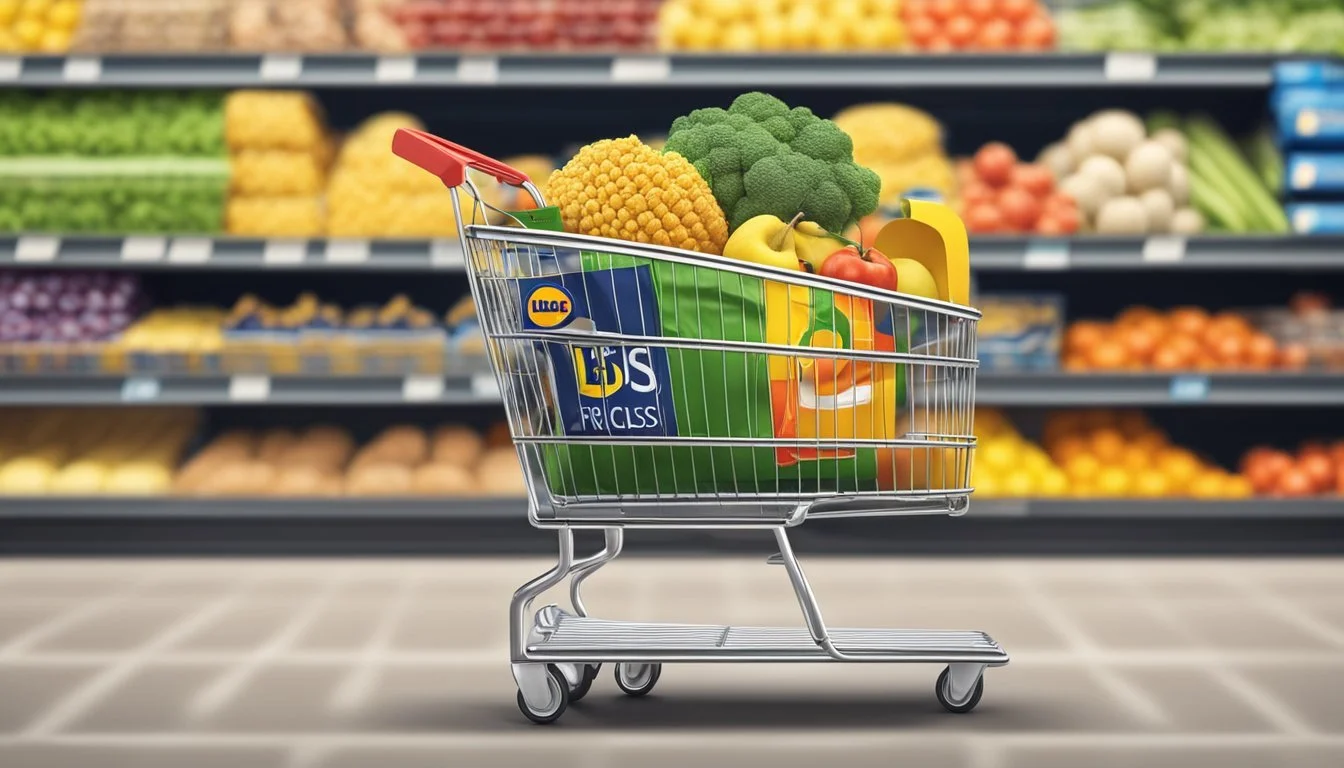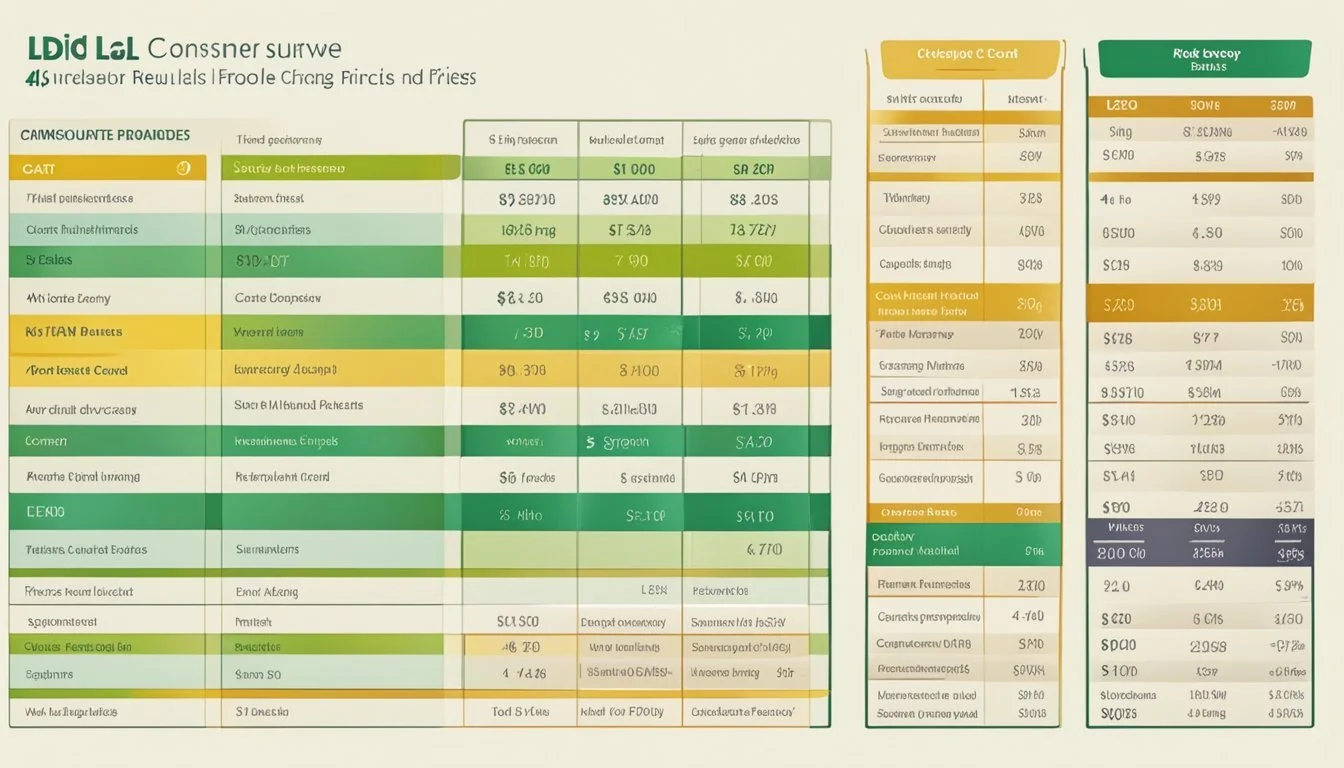Is Lidl Cheaper Than Whole Foods?
A price comparison of budget and premium grocery stores
When it comes to grocery shopping, price is often a top concern for consumers. Lidl and Whole Foods are two well-known supermarket chains with distinct reputations. Lidl generally offers lower prices than Whole Foods across most product categories. This price difference stems from their contrasting business models and target markets.
Lidl focuses on providing budget-friendly options through a no-frills shopping experience and a large selection of private-label products. The German-based discount grocer keeps costs down by limiting store size, product variety, and extra services. Whole Foods, on the other hand, emphasizes organic and premium products, which typically come with higher price tags. The upscale grocer also offers more extensive in-store amenities and services.
A price comparison between these two grocery stores reveals significant savings potential at Lidl. While exact price differences vary by location and specific items, shoppers can generally expect to pay less at Lidl for comparable products. However, it's worth noting that Whole Foods may offer a wider selection of specialty and organic items that budget-oriented Lidl doesn't stock.
Overview of Lidl and Whole Foods
Lidl and Whole Foods represent two distinct approaches to grocery retail. These chains differ significantly in their history, target consumers, and store designs.
History and Expansion
Lidl, founded in Germany in 1973, expanded rapidly across Europe before entering the U.S. market in 2017. The discount grocer initially focused on East Coast locations, gradually increasing its American footprint.
Whole Foods Market, established in 1980 in Austin, Texas, grew from a single store to a nationwide presence. In 2017, Amazon acquired Whole Foods, further enhancing its reach and capabilities.
Both chains have pursued aggressive expansion strategies, with Lidl aiming to compete in the discount sector and Whole Foods targeting the premium grocery market.
Target Consumer Base
Lidl caters to budget-conscious shoppers seeking quality products at low prices. The chain emphasizes its store brands and limited-time offerings to attract cost-savvy consumers.
Whole Foods targets health-conscious and environmentally aware customers. It appeals to those willing to pay premium prices for organic, natural, and specialty products.
The Amazon-owned chain has attempted to broaden its appeal by introducing more affordable options and exclusive deals for Prime members.
Store Layout and Design
Lidl stores feature a compact, efficient layout. Typically ranging from 20,000 to 30,000 square feet, they prioritize a streamlined shopping experience with a focus on essential items and rotating specialty products.
Whole Foods locations are larger, often exceeding 40,000 square feet. They showcase an expansive selection of fresh produce, prepared foods, and specialty departments.
The stores' designs reflect their brand identities: Lidl opts for simplicity and functionality, while Whole Foods creates an upscale, market-like atmosphere with attention to product presentation and customer experience.
Price Comparison and Affordability
Lidl and Whole Foods offer distinct pricing strategies and value propositions for shoppers. Comparing their prices reveals key differences in affordability across product categories and shopping approaches.
Everyday Grocery Items
Lidl consistently offers lower prices on most everyday grocery items compared to Whole Foods. A basket of common products like milk, bread, eggs, and produce typically costs 15-20% less at Lidl. For example, a gallon of milk averages $2.79 at Lidl versus $3.99 at Whole Foods. Lidl achieves these savings through efficient operations and a focus on private label products.
Whole Foods counters with higher quality standards and more organic options, but at a premium. Their conventional produce is often 30-40% more expensive than Lidl's. However, Whole Foods' 365 brand provides more budget-friendly alternatives within their stores.
Discounts and Deals
Both retailers offer regular promotions, but Lidl's discounts tend to be more aggressive. Lidl features weekly "Fresh 5" deals on produce and rotating "Lidl Surprises" on non-food items. These can offer savings of up to 50% off regular prices.
Whole Foods provides exclusive discounts for Amazon Prime members, typically 10-20% off select items. They also run storewide sales events like "5 Days of Deals." However, even with these promotions, Lidl's base prices often remain lower.
Lidl's app offers digital coupons and personalized deals based on shopping history. Whole Foods integrates with the Amazon app for easy access to Prime member savings.
Unit Pricing and Bulk Options
Lidl excels in competitive unit pricing across most categories. Their store layouts prominently display per-unit costs, making it easy for shoppers to compare value. Lidl's larger pack sizes often provide additional savings.
Whole Foods offers an extensive bulk foods section for dry goods, allowing customers to purchase precise quantities. This can be cost-effective for certain items, but requires more effort from shoppers to compare with packaged alternatives.
Lidl's limited-time "XXL" products provide bulk buying opportunities on rotating items. Whole Foods' case discounts on wine and pantry staples appeal to customers making larger purchases.
Product Assortment and Quality
Lidl and Whole Foods offer distinct product ranges and quality standards. Lidl emphasizes affordability while Whole Foods focuses on premium and organic offerings.
Produce and Organic Selection
Lidl provides a mix of conventional and organic produce at competitive prices. Their fruit and vegetable selection is generally fresh and varied, though smaller than Whole Foods. Lidl's organic options are increasing but remain limited compared to Whole Foods.
Whole Foods excels in organic produce, offering an extensive range of fruits and vegetables. They prioritize locally sourced and seasonal items. Whole Foods' organic selection is significantly larger, including hard-to-find varieties.
Both stores maintain quality standards, but Whole Foods is known for stricter sourcing criteria.
Meat and Dairy
Lidl offers a decent selection of meats and dairy products at budget-friendly prices. Their meat quality is generally good, with some organic options available. Lidl's dairy section includes both conventional and organic items.
Whole Foods provides a wider range of high-quality meats, including grass-fed, free-range, and organic options. Their dairy selection is extensive, featuring many organic, artisanal, and specialty products.
Both stores stock fresh and frozen meats, but Whole Foods typically offers more variety in cuts and specialty items.
Private-Label vs National Brands
Lidl heavily relies on private-label products, which make up a significant portion of their inventory. These store-brand items are often comparable in quality to national brands but at lower prices. Lidl does stock some national brands, but the selection is limited.
Whole Foods offers a mix of private-label and national brands. Their 365 Everyday Value line provides affordable organic options. Whole Foods also carries a wide array of premium and niche national brands not typically found in conventional supermarkets.
Both stores emphasize their own brands, but Whole Foods provides more balance between private-label and national brands.
Shopping Experience and Services
Lidl and Whole Foods offer distinct shopping experiences tailored to their target customers. Their approaches to store layout, customer service, and digital offerings reflect their unique brand positioning and pricing strategies.
In-Store Experience
Lidl stores feature a minimalist design with wide aisles and clearly labeled sections. Products are often displayed in their original shipping boxes to reduce costs. The layout emphasizes efficiency, with a central aisle showcasing weekly specials.
Whole Foods stores have a more upscale ambiance. They offer extensive produce sections, bulk food bins, and prepared food counters. The stores frequently include seating areas and coffee bars, encouraging customers to linger.
Lidl's in-store bakery provides fresh bread and pastries daily. Whole Foods bakeries offer a wider selection of artisanal and specialty items.
Customer Service and Checkout Process
Lidl employs a lean staffing model. Customers bag their own groceries, and cashiers often manage multiple tasks. This approach helps keep prices low but may result in longer wait times during peak hours.
Whole Foods provides more personalized service. Employees are readily available to answer questions about products and offer recommendations. The stores typically have more checkout lanes open to reduce wait times.
Both chains use efficient checkout systems. Lidl often features self-checkout options, while Whole Foods integrates with Amazon Prime for member discounts and quick mobile checkout.
Online Shopping and Delivery Options
Lidl's online presence varies by region. In some areas, they partner with Instacart for grocery delivery. Their website primarily focuses on showcasing weekly specials and store locations.
Whole Foods, backed by Amazon, offers robust online shopping options. Prime members enjoy free delivery on orders over a certain threshold. The Whole Foods app integrates with Amazon accounts, allowing easy reordering and access to exclusive deals.
Lidl's online offerings are more limited but align with their low-cost model. Whole Foods provides a seamless digital experience, leveraging Amazon's technology to enhance convenience for customers.
Consumer Ratings and Market Surveys
Recent studies have examined how shoppers perceive Lidl and Whole Foods in terms of quality, satisfaction, and pricing. Survey data reveals key differences in consumer perceptions between the two grocery chains.
Overall Quality and Satisfaction
Consumer Reports surveyed over 75,000 members about 96 grocery stores. Whole Foods earned high marks for produce and meat quality. The chain built a loyal following by offering premium products and prepared foods. However, Whole Foods' quality ratings have dipped slightly in recent years.
Lidl, as a newer entrant to the U.S. market, was not included in some major surveys. Early feedback indicates shoppers appreciate Lidl's streamlined store layouts and curated product selection. The chain emphasizes efficiency and value.
Price Perception Among Consumers
Price perception heavily favors Lidl over Whole Foods. Market basket studies comparing popular grocery items found significant price differences. On average, Lidl's prices were 20-30% lower than conventional supermarkets for many staples.
Whole Foods maintains a reputation as a premium, higher-priced option. Even after Amazon's acquisition, prices remain above the all-store average. Some targeted price cuts occurred on select items, but overall perception as an expensive grocer persists.
Consumer surveys consistently rate Lidl as offering better value. Shoppers cite competitive pricing on both store-brand and name-brand products as a key draw. Lidl's limited-time special buys also contribute to its budget-friendly image.
Additional Amenities and Store Features
Lidl and Whole Foods offer distinct shopping experiences with unique amenities. Both stores provide fresh bakery items and alcoholic beverages, but their approaches differ in quality, variety, and pricing.
Bakery, Deli, and Prepared Foods
Lidl features an in-store bakery department with freshly baked breads, pastries, and desserts. The bakery section offers a rotating selection of items at competitive prices. Whole Foods, known for its high-quality offerings, provides a more extensive range of artisanal breads, gourmet pastries, and specialty desserts.
Whole Foods boasts a full-service deli counter with premium meats, cheeses, and prepared foods. Their hot food bars and salad bars offer a variety of ready-to-eat meals. Lidl's deli section is more limited but includes pre-packaged meats and cheeses at lower price points.
Alcoholic Beverages and Specialty Sections
Lidl's wine section is a highlight, featuring award-winning selections at budget-friendly prices. The store also carries a range of beers and spirits. Whole Foods offers a broader selection of organic and specialty wines, craft beers, and premium spirits.
Whole Foods excels in specialty sections, including an extensive organic produce selection, a dedicated floral department, and gourmet snacks. Lidl offers a smaller but growing selection of organic products and seasonal items like flowers and plants.
Both supermarkets provide specialty food items, but Whole Foods offers a more comprehensive range of international and hard-to-find ingredients.





